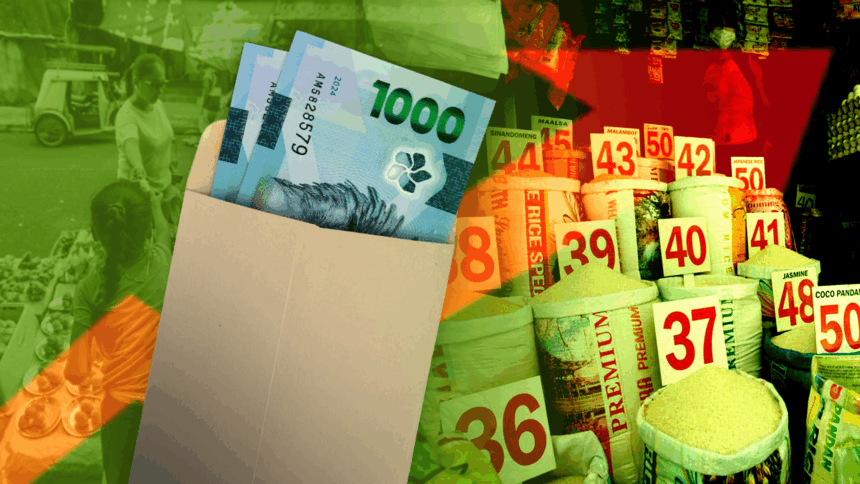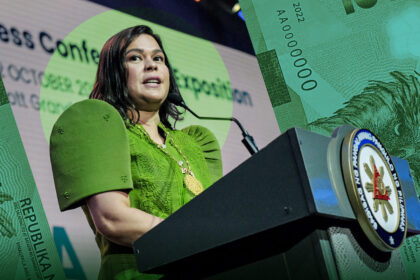Despite a sharp decline in inflation, many Filipino households continue to struggle with day-to-day expenses, fueling renewed calls to raise wages nationwide.
The Philippine Statistics Authority (PSA) reported that inflation dropped to 1.3% in May 2025, the lowest since November 2019.
This continues a steady downward trend that began in late 2024, with inflation averaging just 1.9% for the year so far, well within the Bangko Sentral ng Pilipinas’ (BSP) target range of 2-4%.
Cost of living remains high
Monthly data showed consistent easing: 2.9% in January, 2.1% in February, 1.8% in March, and 1.4% in April.
The inflation drop in April 2025 was primarily due to the slower rise in food and non-alcoholic beverage prices, which eased to 0.9% from 2.2% in the previous month, along with a sharper drop in transport prices at -2.1%.
As of early June 2025, rice ranges from ₱45 to ₱50 per kilo, pork from ₱280 to ₱300, and eggs from ₱115 to ₱120 per dozen—figures still unaffordable for many minimum wage earners.
Gap between wages and needs
The average family living wage in the Philippines is estimated at over ₱1,200 per day, while daily minimum wages remain at around ₱610 in Metro Manila, and far lower in other regions.l
“The continuing denial of a national living wage is a gross violation of the human rights of millions of Filipinos,” says Rochelle Porras, International Department Head of the Ecumenical Institute for Labor Education and Research and CPDG Vice President.
She added that in a country where millions labor to survive, demanding a living wage is a fight to break the cycle of poverty and a fight for justice and dignity.
Labor groups push for action
In May 2025, the Kilusang Mayo Uno reiterated its call for a nationwide wage hike, arguing that falling inflation is meaningless if wages remain stagnant.
“Bongbong Marcos must sign this bill once it is transmitted to his office. The wage hike is already insufficient and if it is vetoed, it will further expose how anti-worker the Marcos regime is,” the group said in a statement.
As the gap between headline inflation and actual affordability widens, economists warn that real progress must go beyond price control.
Kilusang Mayo Uno reiterated that the ₱200 wage hike is insufficient and that without a substantial increase, easing inflation offers no real relief to workers.








